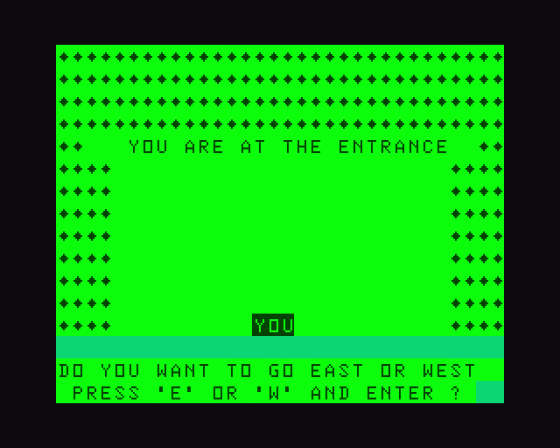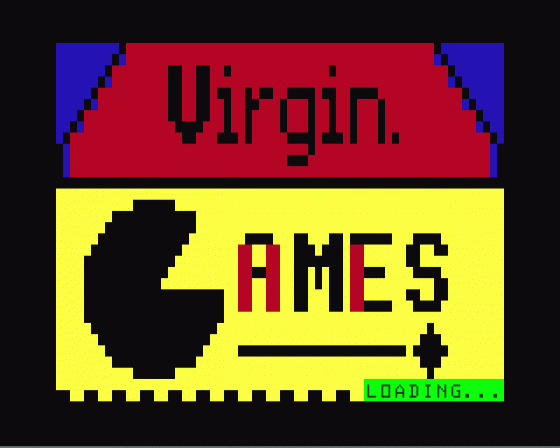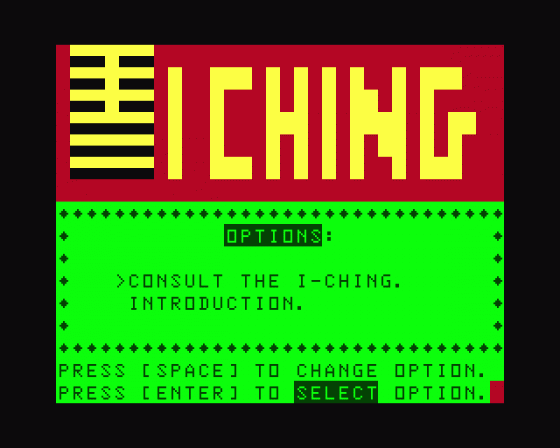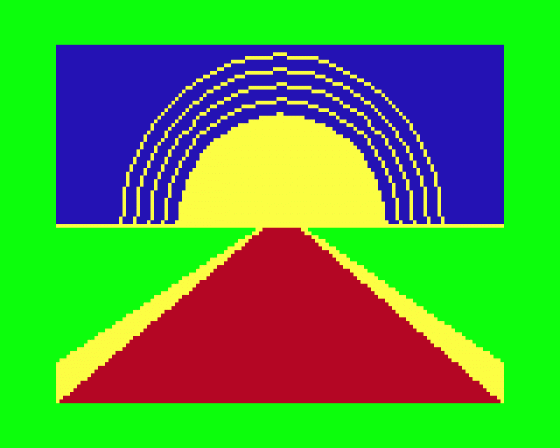
Dragon User
 1st December 1983
1st December 1983
Published in Dragon User #008
This month's selection is quite a mixed bunch. Microdeal continues its attempt to rule the world - or, ar least, the part inhabited by Dragons - and has five new titles, Dragon Data has released a wide variety of games and educational software, and there are some new names hidden among the old favourites
This month's selection is quite a mixed bunch. Microdeal continues its attempt to rule the world - or, ar least, the part inhabited by Dragons - and has five new titles, Dragon Data has released a wide variety of games and educational software, and there are some new names hidden among the old favourites.
Shark Treasure (Dragon Data)
In Shark Treasure, the object is to send divers from a small boat to collect gold bars from the seabed. Each diver is controlled by the cursor keys and the response is fast. The problem lies in avoiding the sharks that swim across the screen in both directions. These are not chunky block graphic creatures, but sleek, blue monsters that snap at anything close to their heads. The display is of a very high standard and the game good fun to play, though not really for the squeamish.
I was rather surprised to see the price quoted for this piece of software as being £12.95. I can see the reasoning behind the high price of some utility packages as they can be used to extend the facilities of the computer, but most games have only a limited interest lifetime. Programs for the Dragon tend to be more expensive than those for the Spectrum, but a price of almost £13 is going to discourage many people from buying this tape, no matter how good the content.
Doodle Bug (Dragon Data)

Doodle Bug is another expensive Dragon Data program, but at least the fact that it is on cartridge is some small justification for a £20 price tag - but even this is questionable.
A cartridge usually consists of a cheap box, a small circuit board, and either one or two EPROMS. The manufacturing cost cannot possibly be more than £4-£5, and yet the selling price is consistently £10-£15 more than the equivalent tape. Most people I know with a collection of games tapes have no more than one or two cartridges simply because 1 cartridge = 3 cassettes in price terms. If Commodore can reduce its cartridge prices, so can other manufacturers. Lower prices would undoubtedly increase sales.
What novelty and originality do you get for your hard-earned £20? In the words of Paul Daniels, "not a lot" - certainly not £20 worth. As you switch on, the display looks suspiciously like Pacman, and that is what this game turns out to be. Although the walls have several swing doors, and there is variety in the articles littering your path, it is still a maze-pursuit game like Cave Hunter and Ghost Attack. Someone at Dragon Data must really suffer from Pacmania. If you don't yet have a version of this old favourite, Doodle Bug can be recommended as having many extra features, but it still doesn't justify the high price.
Storm Arrows (Dragon Data)
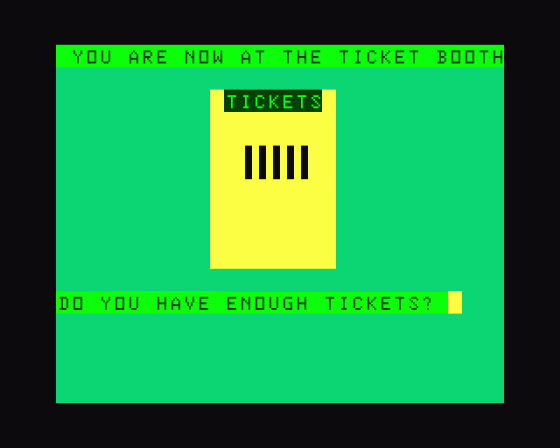
Better value is achieved with Storm Arrows, which Dragon Data has sensibly priced at £7.95. The display consists of a grid inhabited by hostile arrows. The object is to destroy all eight arrows before they destroy you by firing your "laser" at them. As laser is in fact an acronym for Light Amplilication by Stimulated Emission of Radiation, then "lazer" must have something to do with lazar - "one afflicted with a loathsome and pestilential disease", as my dictionary puts it(!). The game itself is fast and exciting and the graphics, although not outstanding, are perfectly adequate for this type of game.
Crazy Painter (Microdeal)
From the hi-tech world of arcade pursuits to more homely surroundings. Imagine the scene - you have decided to paint the floor and it's taken you hours to get it just to your satisfaction. You stand back and admire your work when the neighbours' mongrel, looking rather like Spotty Dog from the Woodentops, comes bouncing in, leaving a trail of footprints. You rush to repair the damage only to discover that you've run out of paint. Returning to the scene with dripping brush, you discover a moth has crawled along the top, a worm has entered from the side and Spotty Dog has returned.
These are just a few of the things you have to contend with in Crazy Painter from Microdeal, There are eight levels of difficulty, and a high degree of frustration. The unpleasant creatures that try to ruin your brushwork increase in number as the difficully goes up, and your pots of fresh paint rapidly disappear from the base of the screen. Occasionally, the display changes to paint slowly dripping from the top, and the object then is to prevent it reaching the bottom. Bonus points are awarded according to how long you delay your fate. This is an original idea and makes a pleasant change from the usual space games. To add to your irritation, there is even a rendition of "Whistle While You Work" in the background!
Cuthbert Goes Digging (Microdeal)

Last month I looked at Cuthbert Goes Walkabout, with our unfortunate hero attempting to light up the Lunar Landing Pad. Microdeal must be hoping that Cuthbert will become the Dragon equivalent of Horace, whose exploits on the Spectrum are always entertaining. This month, Cuthbert returns on two cassettes, digging graves for his enemies and seeking treasure in the jungle.
Cuthbert Goes Digging is just like Bonka from J. Morrison Micros. You control a small figure who scurries from level to level round the screen digging holes in front of the evil Moronians. On luring them into a hole, he has to fill it in quickly before they leap out and electrocute him. The game increases in difficulty as you progress and there is the added complication of running out of oxygen as you race around. You can choose between joystick or keyboard control and the game becomes fast and furious at the higher levels.
Cuthbert In The Jungle (Microdeal)
Although I preferred "Digging" to "Walkabout", my favourite is Cuthbert In The Jungle. Using the joystick, you control Cuthbert's tiny figure as he runs to the left and right and jumps over logs. When he reaches the side of the display, a fresh screen appears with new hazards that must be defeated. These include pits, quicksands and alligators. Occasionally, Cuthbert has to emulate Tarzan and swing on hanging vines. Farther into the game, he encounters various treasures that have to be brought back before his time runs out. I enjoyed this game a lot, as it is necessary to build up skills in the early stages before you are competent enough to deal with the later hazards. Each time you play, you improve and get closer to the treasure (or like me, eaten by the alligators) The graphics are superb and the response is very fast - certainly my favourite game of the month.
Intergalactic Force (Microdeal)

Towards the end of Star Wars, there is a chase sequence for several minutes down the interminable canyons of the Death Star. This has inspired severai games programmers, including the author of Intergalactic Force (Microdeal). The walls and floor rush by as you attempt to drop bombs on to enemy space ships beneath you. Fighters spoil your aim by showering you with highly accurate laser bombs. With special permission from Isaac Newton, you are allowed to suspend gravity for a while as you drop bombs upwards but this is not an easy task. There are two speed options, three skill options, and control is by means of joysticks. If you like arcade games, then you should find this fast and challenging, as well as keeping your trigger fimger warm on winter evenings.
Keys Of The Wizard (Microdeal)
I have not seen any new adventure programs for some time (I think the editor is afraid he might have to send a search party out after me one month), but this month Microdeal has released Keys Of The Wizard. Although this is a text-only adventure, it is played in real time, so you have to be quick to enter your instructions. The display contains detailed room descriptions and exit routes, while the top line gives you constant status reports on your own condition and that of the eight creatures that inhabit the game.
The object is to explore many locations, fighting dangerous creatures and collecting treasures. At the beginning, you can select the skill level from one to three, and the instruction sheet gives a large list of recognised commands. If the game continues for a long time, you can enter QUIET to freeze the action, while you do the washing-up or go for a walk. If you wish, you can save the game status on cassette at that point, or you can type UNCLE (??) to end the game. As with all programs of this nature, it is essential to draw a map as you proceed. This is a well-constructed adventure, and is of a higher standard than the Williamsburg and Jerusalem adventures that Microdeal released earlier this year.

Any more details will give too much away, but if you like unicorns, ores and festers, and are skilful with scimitars and mattocks, you will enjoy this game.
Circus Adventure (Dragon Data)
If you wish to lure very young minds into the dark world of adventures, then you may wish to consider Circus Adventure from Dragon Data. Rather than being thrown in at the deep end, this is more of a gentle paddle in the black arts. The game is set in a typical circus, and the object is to find the popcorn stand in the minimum number of moves. There are rather basic block graphics to show the trapeze, the tigers cage, etc. and each location has only two exits. The game is aimed at primary children, but only those up to nine or so would play it a lot. If you press BREAK (not disabled) and list the program, you may wonder how Dragon Data can justify the £7.95 price - only 5p more, and you could have Keys Of The Wizard.
School Maze (Microdeal)
A similar criticism can be levelled at School Maze - if the format has to be kept simple as it is aimed at children, then the program should offer better graphics and sound so that you feel you are getting something more substantial for your money. The object of the program is to find a missing computer tape hidden in a school. A map is shown at the start and at various times during play. There are only two exits from each location, and most rooms are illustrated by some block graphics. In the kitchen you can choose what you wish to eat, play tunes in the music room or draw pictures in the art room.

If children of six or seven can cope with Circus Adventure, then those of nine or ten should have little difficulty in playing School Maze. Although these two programs are easy introductions to keyboard use in general and adventure games in particular, it would be more realistic pricing to put both programs on onecassette.
Teletutor (Microdeal)
From programs that are designed for children to use, it is only a small step to educational programs. There are several of these this month, and they fail naturally into two groups. The first of these is that of formal computer assisted learning, Teletutor from Microdeal is a very workmanlike set of programs, firmly packaged in a stiff A4 folder. When you pick it up, you can tell they mean business right from the start. It should, however, be admitted that there are only ten sheets of brown paper inside the folder, and two cassettes in a flap in the cover. One gets the impression that this is a slight case of over-packaging, perhaps to justify the high price.
The first two programs, Spelling Test and Word Drill, contain sample files on cassette to demonstrate how they work, although in practice you would want to enter your own words. The documentation explains clearly how to do this. The cassette plays a word through the TV speaker and this has to be entered carefully at the keyboard. After the test, the words are shown on the screen and can be copied on to a printer.
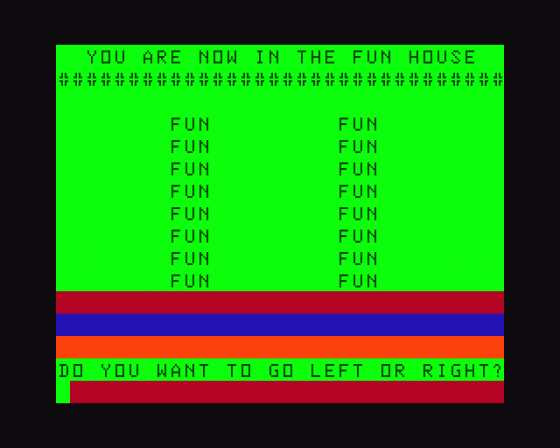
Word Drill is a multi-choice vocabulary quiz. Again, the demonstration file shows you how to use the program. The screen format is word, followed by eight selected definitions, from which the correct response may be entered before the preset time limit has expired. The program is menu-driven and easy to use.
Maths Drill covers the four rules (addition, subtractron, multiplication and division), and it has several features - up to six children can use it at once, there are ten levels of difficulty that adjust automatically to the responses, there is a timer function and "smiley faces" are used as a reward.
Estimate follows a similar course to Maths Drill, except that it is designed to practise mental arithmetic. The complete package originates from Tom Mix in the States (a far cry from Donkey Kong!) and has rather obvious American educational tinges - the smiley face, for example, although there is nothing there that would be upsetting for an English educationalist. It is, however, not exciting in presentation, and a little restricting in the way in which you can enter answers - in long multiplication, for example. Children would not be overimpressed with it, and it makes no attempt to explain why incorrect responses are not right. If a child already had the various concepts, then these programs would provide a way of reinforcing them, but the responses would tend to be conditioned rather than made with any understanding of the processes involved.
Maths Trek (Dungeon)

Maths Trek from Dungeon Software attempts to bridge the gap between a drill program and a game. Based loosely on that well-known crew who boldly go, etc, the object is to rise from a lieutenant to a general (I don't know what Captain Kirk would have to say about that!). The screen swops between a view of the bridge of the Enterprise, complete with dials and star-screen, and a status display board showing warp speed and distances to the next star-base. The Enterprise is moved by successfully answering maths problems in the four rules, square numbers or areas. Various hazards, such as Klingon attacks and Black Holes impede your progress and it takes several missions to complete your rise through the ranks. Although lacking in the excitement of the usual Startrek games, it might encourage children who don't find maths an interesting subject, I feel that if this was used with children, the difficulty level would have to be set rather low. I was asked for the square of 217 - and that was only on level 25 out of the possible 50!
Number Puzzler (Dragon Data/ASK)
The most professional and carefully produced educational software this month comes from Dragon Data, although the programs were written by Applied Systems Knowledge Ltd, who sell their own software for other machines such as the BBC micro.
Number Puzzler allows you to choose between five different games - addition, subtraction, adds and subs, magic squares and self-test. The first three games use the same format - four sets of noughts and crosses boards that contain numbers between 1 and 99. Using numbers that appear at random at the bottom of the screen, the object is to fill the boards in, in the same manner as bingo. You can play against the Dragon or against a human partner, and the first line of three numbers filled in produces the winner.
In Magic Squares, the computer produces numbers for you to insert in a frame on the screen to form a square that is as magic as possible - in other words, one that adds up to the same answer in each row and column, as well as diagonally.
All A.S.K, programs use a symbol of a hand and finger to denote pushing the space bar, and they are all very well error-trapped - only those keys actually needed for a response can be entered. At any time, during the course of the program, you can return to the start by pressing shift and an arrow key.
Hide And Seek (Dragon Data/ASK)
Hide And Seek is designed to encourage and develop short-term memory and other skills important in learning to read. There are several versions of the program available, but all consist of nine boxes containing pictures of objects and their associated names along the bottom of the screen. You either have to press the ENTER key when a cursor is over the correct box or enter the name of the picture spelt accurately. The pictures are fairly unambiguous and the program clearly achieves most of its stated aims in helping children acquire early reading skills.
Number Gulper (Dragon Data/ASK)
Number Gulper is the closest you could get to an arcade maths game. At the start you decide on whether you are going to use the keyboard or joysticks and then enter the target number. The display changes to a board with a yellow track around which you steer your small gulper. As it passes over various numbers, you can add them to your score as you attempt to reach the target number. The numbers are prefixed by +, -, X or /, so you could reach 100 by entering +2, +3, X4, +6, -1, X4. At the end, you are raised to a higher level or demoted, depending on how many gulpers you have left. There is also the option for a self test. Children seem to enjoy this program greatly, and as there is a time limit, it encourages fast mental activity.
These three cassettes all cost £10.95, which I feel is rather excessive, but there is no doubt that they are above average and you may feel they would be worth having in an educational collection.
I Ching (Virgin Games)
Virgin Records expanded through the 70s from a few retail outlets to producing its own records and now has fingers in several pies throughout the leisure industry. Recently it moved into computer software with a range of titles for different machines. The first Dragon tape I have come across is I Ching. This is a rather esoteric choice for one of their early releases, and may not be particularly accessible to many Dragon owners.
According to early Chinese philosophers, all things that happen in the universe affect all other things - a similar theme was present throughout the tracks on the last Police LP. This interdependence is like seeing the cosmos as a large machine, where all the parts affect the whole and each other, it is like having a brake shoe slightly out of adjustment in a car. This can cause the brakes to pull, putting a strain on the steering, the other brakes, the engine and ultimately, the driver. The patterns and changes in the universe can be seen in all things, from the fall of coins to the selection of bundles of plant stalks. Taoist philosophy would not attempt to change the future, merely to "go with the flow" given the state of play at any particular time. These ideas were very popular with hippies in the late 60s.
The original method was to think of a problem, such as "how can I do this review and go to the pub" and to cast three coins or select a bunch of yarrow twigs from a pile. This was repeated six times to build up a hexagram of solid or broken lines. You will realise that there are 2 to the power of 6, or 64 different combinations that can result. The Chinese saw these as symbols of real things, such as thunder over water, or fire over a lake. King Wen wrote down commentaries on each combination. The I Ching is a book that contains these interpretations and it is supposed to offer an intuitive approach to solving the initial question.
The Virgin program gives detailed instructions on the screen, then tells you to think of a question while you press the space bar. A road leading into an enormous arch appears, and the hexagram is built up a line at a time. As the final line appears, the screen shows a description of the hexagram and a brief commentary.
The program is well-written and the displays are clear. I feel, however, that the sort of person who would cast the I Ching would be happier to use coins or sticks in a darkened room, heavy with incense. A copy of the book in translation will cost you the same as the program and give you hours of interesting reading and insight into Taoism and its links with some schools of modern psychology. Just as I have never seen the point of computerised phone books - just as quick to look it up in the paper version - this program seems to be more of a clever exercise than a useful tool, However, if you are an electronic hippy, it might be just what you're after.
Timscript (Dragon Data)
To finish off this month, ik yw lk to hear ab a new pc of software from Dragon Data tt mt mk it faster when yv to tp less. Timscript is designed to recognise two letter combinations that are not in themselves words, and convert them on the screen into normal English. Hence the strange sentence above, which would appear on the screen as "I know you will like to hear about a new piece of software from Dragon Data that might make it faster when you have to type letters." There is a dictionary already supplied on cassette, or you can enter your own, and there are a possible 26 x 26 or 676 combinations to use (less words like on, be, etc).
As well as this facility, there are limited word-processing features such as automatic word-wrap, line move and delete, and a menu-driven load/save/print option, The documentation is very full, and comes in the form of a 40-page booklet. Although an interesting idea, I would have reservations about its usefulness. It is designed to save time in typing, and yet it would take some time before you felt competent at using the abbreviated forms.
If you think it's worth the effort of learning to use, then it's definitely the sort of program to try our in a shop before you purchase.
A Sign Of Things To Come?
In this collection of software, there is only one true space arcade game. Whether this reflects a changing mood, I don't know, it certainly takes a weight off my shoulders knowing I no longer have to defend the earth from the swarms of aliens that usually descend on my head each month. In some ways, software themes echo the course of Science Fiction movies from the 50s onwards. The philosophy of early flying saucer films was "If it's an alien, shoot it", rather similar to the westerns, where it was a case of "if it's an Indian, shoot it".
Just as heroes in the movies began to have intelligence and sensitivity, so the programs of the future will require you to have more than just a fast finger in order to be successful.


